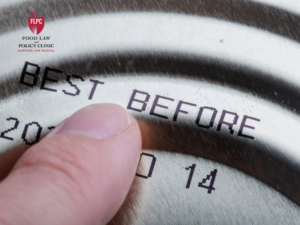The Harvard Law School Food Law and Policy Clinic (FLPC) submitted two public comments responding to the U.S. Department of Agriculture (USDA) notice of request for public comment on climate-smart agriculture and forestry practices and systems. The USDA request was a response to Biden’s Executive Order to Tackling the Climate Crisis at Home and Abroad. FLPC submitted a comment with the Partnership for a Perennial Agriculture and as part of the Farm Bill Law Enterprise (FBLE), a cross-law school partnership that also includes the Harvard Law School Environmental Law and Policy Clinic. The climate-smart agriculture and forestry questions sought responses on how the USDA could utilize existing programs, funding, policies, tools, research, including new strategies to encourage the voluntary adoption of climate-smart agriculture and forestry practices.
The Partnership for a Perennial Agriculture comment recommended various ways that the USDA can support the adoption of perennial agriculture practices and maximize its potential to sequester carbon and mitigate the effects of climate change. The comment recommended that the USDA develop an inter-agency perennial agriculture strategy, and identified opportunities within the conservation, federal crop insurance and research programs to support perennial agriculture. In addition, the comment recommended that the USDA enhance technical assistance, strengthen marketing infrastructure for perennial products, and enhance land tenure security for farmers adopting perennial agriculture practices. The comment also responded to the question on how the USDA can support the emerging markets for carbon and greenhouse gases, recommending that the USDA pilot a federal carbon bank and prioritize perennials at the center of efforts to pay farmers for carbon sequestration.
In addition, the FBLE comment identified opportunities to support USDA’s climate-smart agriculture objectives across a number of different programs. FBLE recommended ways the agency could leverage existing programs, like the Forest Legacy Program, federal crop insurance, conservation programs, and USDA’s Climate Hubs, to promote and incentivize practices that could mitigate climate change, as well as help farmers adapt to a changing climate. FBLE also made recommendations for how USDA could play a role in carbon markets, in part through piloting the development of a federal carbon bank.
Additionally, FBLE responded to USDA’s questions regarding how the agency can ensure that it addresses environmental justice and develops equitable programs and policies as it works to achieve climate-smart agriculture. FBLE’s suggestions included creating a USDA truth commission, improving transparency and accountability related to civil rights enforcement, retooling grants and other payments to work for limited capacity producers and organizations, and enhancing technical assistance for historically marginalized farmers and ranchers.
The public comments will be considered as the USDA develops recommendations to expand the agency’s climate-smart agriculture and forestry practices and systems.

Health Law & Policy, Commentary
Cuts to the Federal Workforce and Medicaid: What’s Happening and What Can Advocates Do? – Health Care in Motion
March 12, 2025